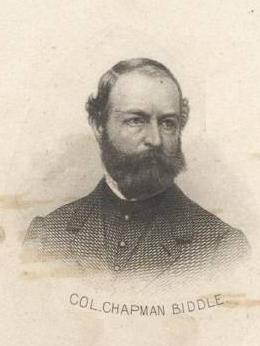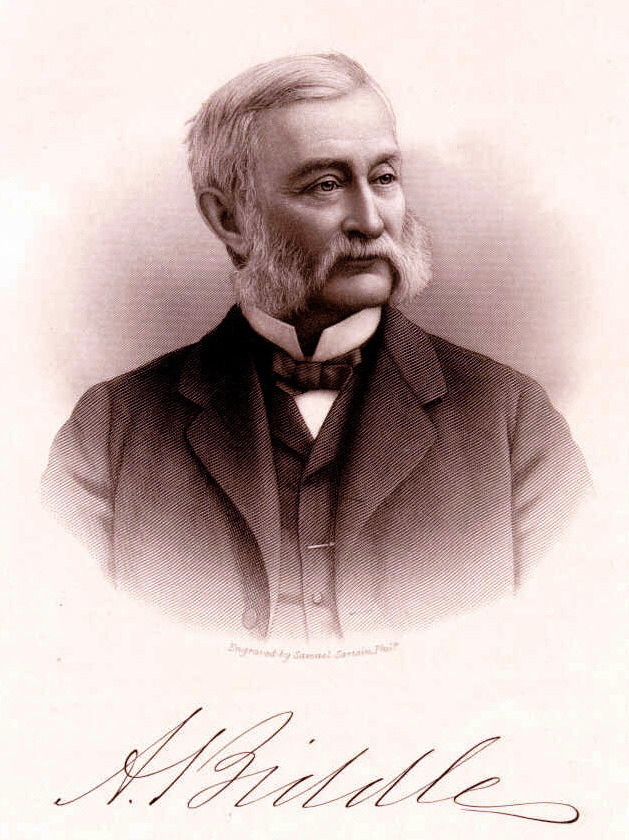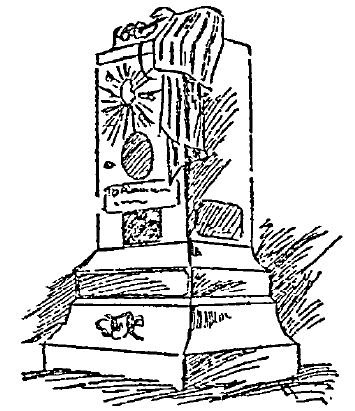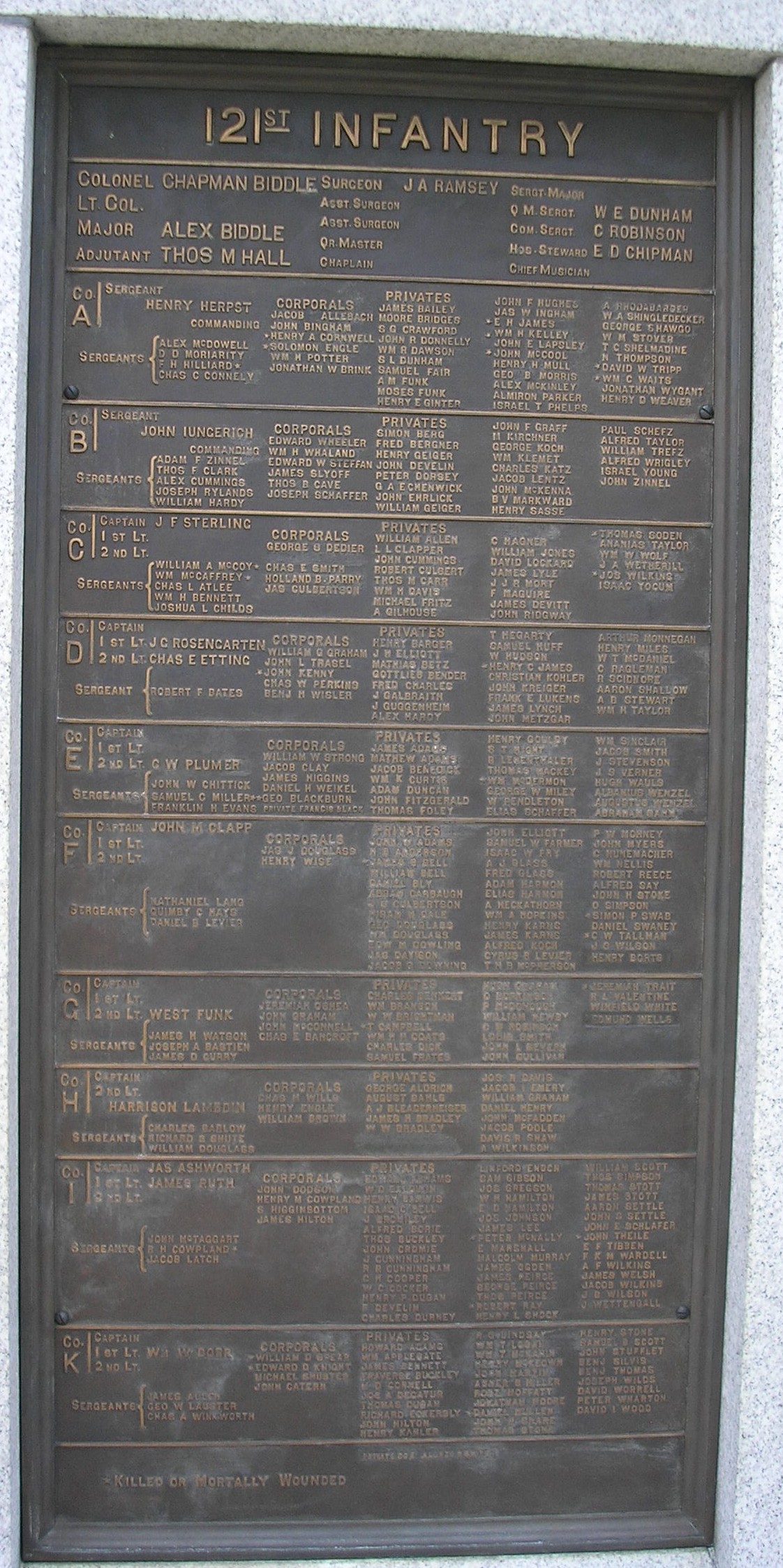Monuments at Gettysburg – 121st Pennsylvania Infantry
Posted By Norman Gasbarro on April 1, 2015
The 121st Pennsylvania Infantry Monument at Gettysburg is located west of the town of Gettysburg on Reynolds Avenue. It was dedicated in 1888 by the Commonwealth of Pennsylvania and is the second monument to this regiment at Gettysburg; the first monument is located south of the town of Gettysburg and was dedicated in 1886 by the regiment’s survivors.
The drawing of the second monument pictured above is from a Philadelphia Inquirer article of 11 September 1889.
A picture of the monument can be seen on Stephen Recker’s Virtual Gettysburg Web Site which has more information about the monument and the 121st Pennsylvania Infantry.
A full description of the second monument, its GPS Coordinates, additional photographs, and some of the history of the 121st Pennsylvania Infantry, can be found on the Stone Sentinels Web Site. There is also a picture and information about the first monument.
——————————-
The engagement of the 121st Pennsylvania Infantry in the Battle of Gettysburg was briefly described in the Philadelphia Inquirer of 11 September 1889:
The Rainbow in the West.
As the 121st Regiment, under command of Lieutenant Colonel Alexander Biddle, approached Gettysburg the shells were seen bursting over the distant woods. They soon came to where Buford’s cavalry engaged the enemy, and then advanced through the woods west of the seminary to meet the enemy. A vigorous shelling of their position preceded the grand advance upon the 121st, in which it was subjected to an enfilading fire. The charge in front was successfully resisted, but the flank fire drove the fragment of the Union command back to a barricade in the woods to the rear of the seminary. After clinging there a while they retired to Cemetery Hill, with the consciousness of having checked vastly superior numbers. The night closed with a vision of a beautiful rainbow in the west. Out of the seven officers and 256 men engaged only two officers and 82 men saw the rainbow. The others lay upon the field. The oration at the monument will be delivered by Joseph G. Rosengarten.
—————————-
The 121st Pennsylvania Infantry at Gettysburg was commanded by Major Alexander Biddle, but during the battle, his cousin, Colonel Chapman Biddle, who at the beginning of the battle was temporarily commanding the brigade, had to re-assume command of the regiment. The cousins were members of a prominent Philadelphia family.

Chapman Biddle
Chapman Biddle joined the 121st Pennsylvania Infantry as Colonel on 1 September 1862. Prior to the war he was involved in a private law practice in Philadelphia.
Biddle’s role at Gettysburg is best briefly explained in his Wikipedia article:
Biddle assumed command of the 1st Brigade, 3rd Division before the Battle of Gettysburg began on 1 July 1863. The assignment of Maj. Gen. John F. Reynolds as commander of the army’s left wing led to acting promotion of brigade commander Brig. Gen. Thomas A. Rowley to command of the division while Maj. Gen. Abner Doubleday led the corps. Colonel Biddle led the four regiments of the brigade in the first day’s fighting on McPherson’s Ridge and the subsequent withdrawal to Cemetery Ridge. His report on the first day’s fighting describes the brigade’s fighting as taking place under heavy artillery fire. When the brigade was flanked by Confederate infantry, Biddle led an unsuccessful counterattack. Later he received a head wound from a spent Minié ball when Col. Abner Perrin‘s brigade attacked the brigade’s fall-back position on Seminary Ridge. Biddle had his head bandaged, and then returned to his troops.
Returning to his regiment on July 2, after Rowley resumed brigade command, Biddle participated in the repulse of Pickett’s Charge. By the end of the battle, only 84 of 263 soldiers were left in the ranks. Biddle played no role in the court-martial of General Rowley for being drunk on the field at Gettysburg. In fact, he never referred to Rowley’s role in the battle in anything he wrote during or after the war.
Biddle led the 121st Pennsylvania though most of the summer and autumn of 1863, including most of the Bristoe Campaign and the Mine Run Campaign, before being discharged on December 10, 1863. His head wound, received at Gettysburg, eventually led to Biddle’s departure from active service. His old regiment remained in service to the end of the war, being mustered out on 2 June 1865.
After the war Chapman Biddle served as a lawyer in Philadelphia government and played an active role in establishing Fairmount Park. He died on 9 December 1880 in Philadelphia and is buried in the churchyard of St. James the Less Episcopal Church. Further information, beyond that given in the Wikipedia article, can be found in his Findagrave Memorial.

Alexander Biddle
Alexander Biddle was a graduate of the University of Pennsylvania, 1838, and thereafter joined his father’s company. In 1855, he married Julia Williams Rush, the granddaughter of Benjamin Rush. On 1 September 1862, he was mustered into the 121st Pennsylvania Infantry at headquarters with the rank of Major. On 26 July 1863, he was promoted from Major to Colonel, but was never mustered at that rank. He was discharged from the service on Special Order on 9 January 1864.
After the Civil War, he retired from his father’s company and served as a Director of the Pennsylvania Railroad and the Philadelphia Savings Fund Company.
Alexander Biddle died on 2 May 1899 and is buried in the Laurel Hill Cemetery in Philadelphia. More information about him can be obtained from his Wikipedia article and from his Findagrave Memorial.
—————————-
Around the base of the Pennsylvania Memorial at Gettysburg are a series of plaques which, by regiment and company, note the names of every soldier who was present at the Battle of Gettysburg. The plaque for the 121st Pennsylvania Infantry is pictured below. By clicking on the plaque it should enlarge so the names can be more clearly read. If a name does not appear, it could be that the soldier did serve in the 121st Pennsylvania Infantry, but was not part of the regiment during its days at Gettysburg. There could also be errors on the plaque.
 ;
;




Comments